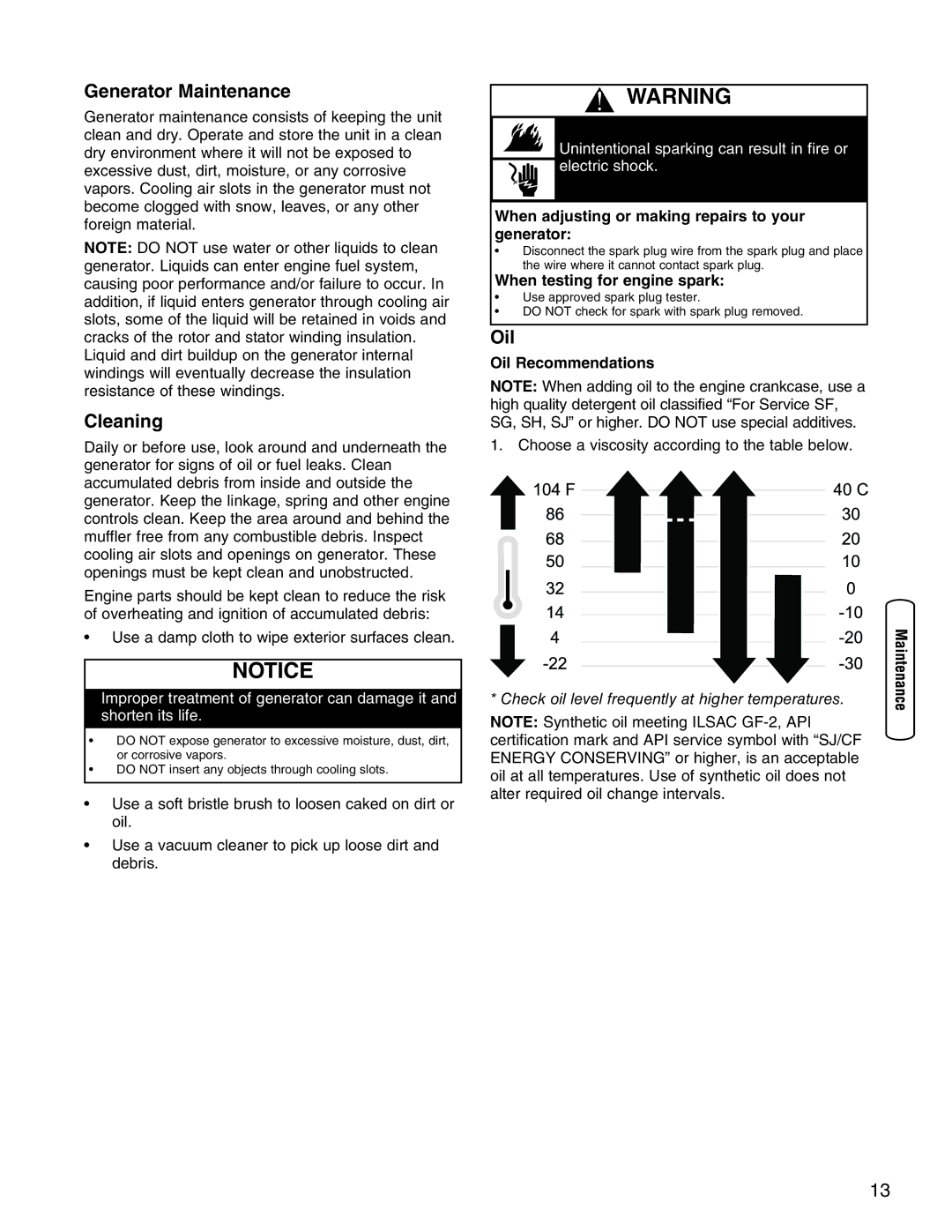30235 specifications
The Briggs & Stratton 30235 is a powerful and efficient portable generator designed to provide reliable backup power. Ideal for homeowners and recreational users alike, this model boasts a range of features and technologies that enhance its performance and usability.One of the standout features of the Briggs & Stratton 30235 is its 306cc engine, which delivers 7,000 starting watts and 5,500 running watts. This robust power output ensures that essential appliances, tools, and devices can be effectively supported during power outages or when on outdoor adventures. The generator is equipped with a durable 4-gallon metal fuel tank, providing up to 13 hours of run time at 50% load, which means users can count on extended operation without frequent refueling.
The generator employs a reliable and user-friendly design, featuring an easy-to-read LED display that provides important information such as power output and operational status. Additionally, it includes an automatic low oil shutdown feature, which protects the engine from damage by shutting down the unit when oil levels are too low. This functionality not only prolongs the life of the generator but also assists users in maintaining optimal performance.
For enhanced portability, the Briggs & Stratton 30235 comes with a built-in handle and never-flat wheels, making it easy to transport and position wherever needed. Its compact footprint allows it to be stored without taking up excessive space, making it an ideal choice for those with limited storage options.
The generator also features multiple outlets, including 120V 20A NEMA 5-20R duplex receptacles and a 120/240V 30A L14-30R lockable receptacle. This versatility allows users to connect a variety of devices and appliances, enhancing its usability for different applications, from home backup to camping trips.
In terms of safety, the Briggs & Stratton 30235 includes circuit protection to prevent overloading, ensuring that connected devices are protected. Moreover, it runs quietly compared to many other generators in its class, making it suitable for use in residential areas without causing a disturbance.
Overall, the Briggs & Stratton 30235 combines power, portability, and practicality, making it a top choice for those in need of reliable backup power or portable energy solutions. With its thoughtful design and advanced features, this generator stands out as a dependable companion for any situation that requires consistent electrical support.

